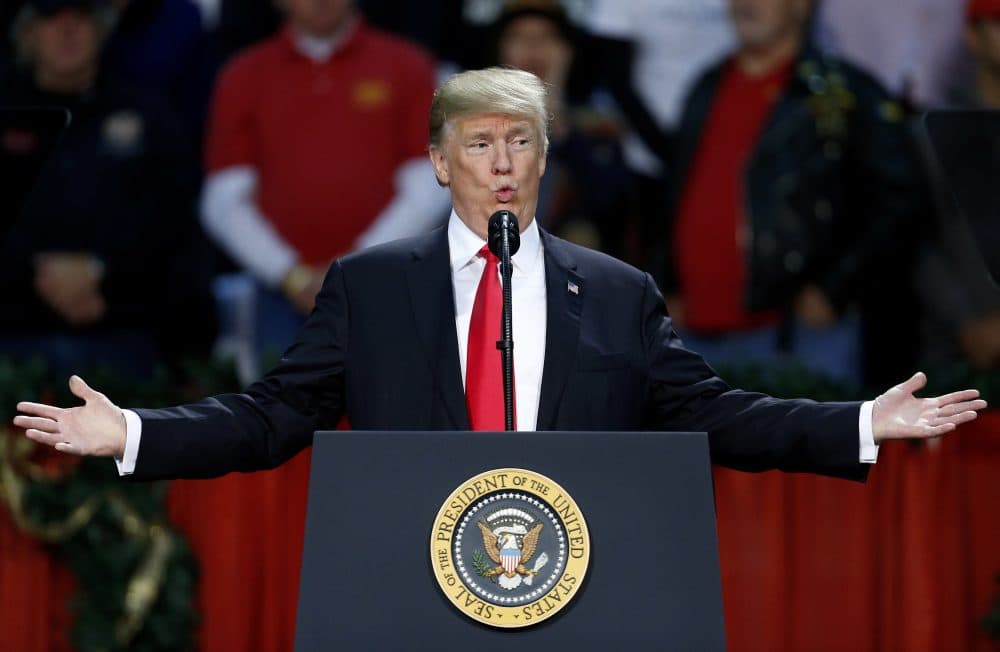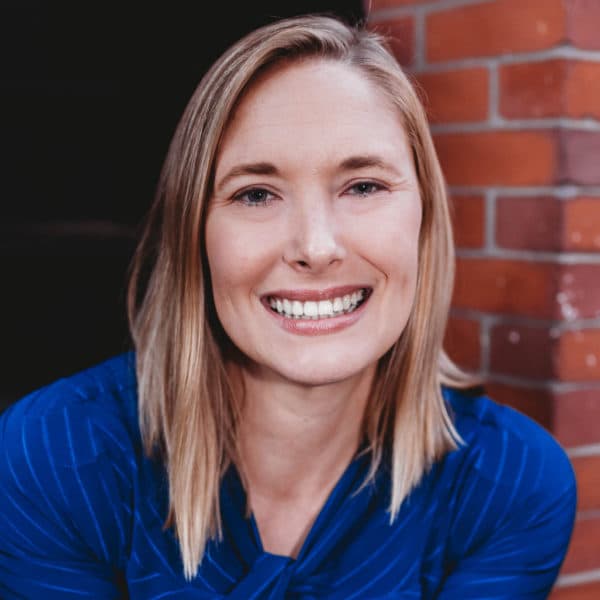Advertisement
Trump's First Year, In Review

This week on Freak Out And Carry On, Ron Suskind and Heather Cox Richardson talk with Amy Siskind, President of The New Agenda and author of The Weekly List. They look back on President Trump's first year in office, from his "American carnage" inaugural speech to the ongoing Mueller investigation, and examine the most important broken norms.
Next week, Freak Out and Carry On will take the week off. See you in the new year!
Excerpts
Ron Suskind: This was our last episode of 2017 and, oh, what a difference a year makes! What a year! I feel like I'm still suffering from post-traumatic stress disorder. I mean one thing after another, when you run through this year, right from the start from Trump standing there and saying "American carnage", there, on the steps of the Capitol an inauguration. Right to Jim Comey being fired, right to madness in the White House, right to Charlottesville, all the way through to now Alabama as a finish. Part of what is so stunning is that when you do lay it down and say go by months, month by month, you actually can kind of recast and get a sense of distance traveled which I think is helpful. It is terrifying but at least you know where we were and where we are. We are sliding into uncharted terrain for this nation when it comes to the idea of what a democracy represents. You know I sit there and I say, having covered dictators around the world, every day I'm watching one on Fox News and CNN and NBC and ABC. And he's leering at me going, I dare you. You bet. You know just what I am. Look at this face, if you dare. Can you look any longer? And frankly I cannot turn away. I feel like it's my obligation and I know you do too. And I think much of America feels it as well. They want to say I am now being called to stand for the principles that I learned in eighth grade civics for what this democracy represents. That is the year we are now finishing!
Heather Cox Richardson: I am both freaking out and carrying on. And here's why: there is no doubt at all in my mind that America is in a moment of profound crisis. We are in a moment when our institutions of democracy are coming up against the pressures of an oligarchy and its doing so in a really stark way. And on the one hand I look at what I can't even call creeping authoritarianism any longer because to me it really looks like authoritarianism and I'm terrified. But at the same time, as I'm watching what seems to me the movement of our government of the people, by the people and for the people into a government of Wall Street, by Wall Street and for Wall Street, I worry but at the same time I look around us and I see signs of hope. And again as a historian I tend to look at the broad picture. When I look back at 2017 what I think of are the Confederate statues coming down. Because to my mind as a historian when statues come down regimes change. And the current Republican Party very carefully tied itself to the concepts of the Confederacy and to those Confederate statues. So that symbolism and the movement that took those statues down seems to me extraordinarily important. And so does what I will call the "Me Too" movement which I think is a symbol for a much larger moment of women taking back the country and saying we are not going to be under the hand of this macho-individualism any longer. So I look at that and I'm very hopeful. I will say that it seems to me we're at this moment of crisis and I'm incredibly heartbroken that we're here. But if we have to be here I feel honored to have a part in it.
Ron Suskind: Amy, looking back on 2017, this first year the Trump presidency, what would you say are the three biggest norms that Trump has broken, the ones that go right to the fabric so to speak of our democracy?
Amy Siskind: First, that we have a leader who attacks not only the media, I would say, it is even broader than that. He attacks any voices of dissent. In one of the early weeks he had attacked a union leader at Carrier Corp. because he dared to speak out against him and the guy was getting death threats. That was in the same week he was attacking the media and in the same week he was attacking SNL. So broad base attacks on anything to do with dissent. The second would be he has installed regime members to run federal agencies like the State Department, like the Department of Education. And essentially they're staffing their agencies and deconstructing them and rolling back protections and rights for Americans, as well as undoing regulations. And the third would be that he has over time been increasingly uncomfortable and moved us away from our traditional allies starting with Mexico and Canada and Germany and France and he feels much more at home and seems to cozy up with authoritarian leaders.
Heather Cox Richardson: Amy, I would love to hear what you have to say about Charlottesville. In Charlottesville, it seemed to me to be the moment when there was almost the perfect storm of norm-breaking and history and the president and the Republican Party and people of color and women all sort of coming together for that incredible crisis there. Then what did that look like to you?
Amy Siskind: There have been a few weeks where I have sat at my computer screen with literally tears coming down my eyes, writing the list and that was such a heartbreaking week. Not only that it happened. I remember Friday night, I was working on the list for that week and at that point people marching at University of Virginia. But then what happened afterwards and how Trump addressed it was heartbreaking and I agree with you a turning point. I think if we look at the trajectory, one of the things you mentioned, is as bad as things have become under him there's been an awakening of the American people and that was definitely an inflection point. So you know it was a time when two things were very clear: that he was going to do whatever he needed to do to keep together his base and there was also, I think, a moment of self reflection for our country. This is just so not OK.
The views and opinions expressed in this podcast are solely those of the participants and do not in any way reflect the views of WBUR management or its employees.
